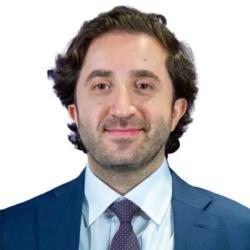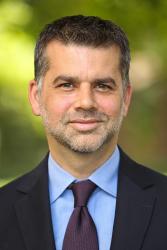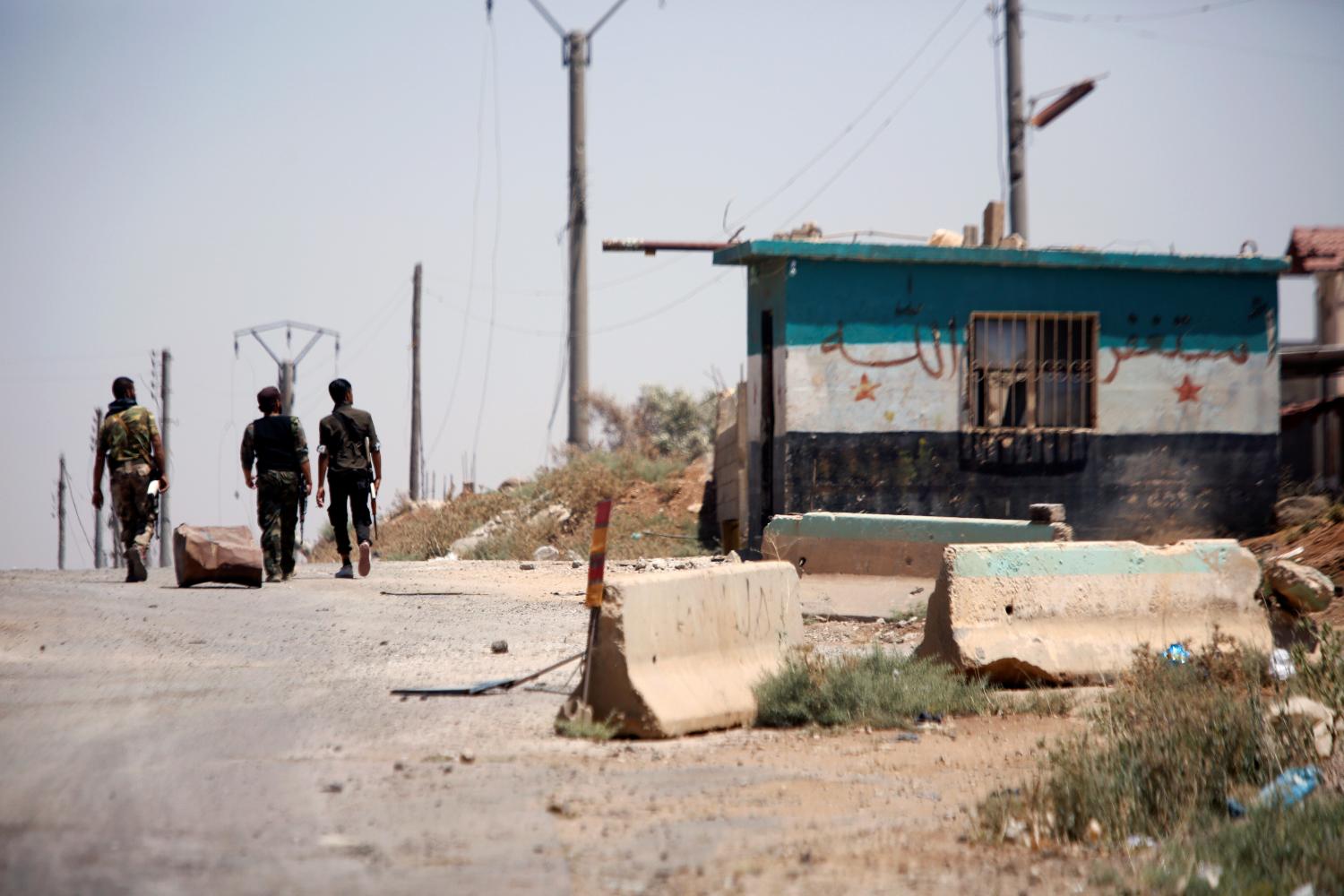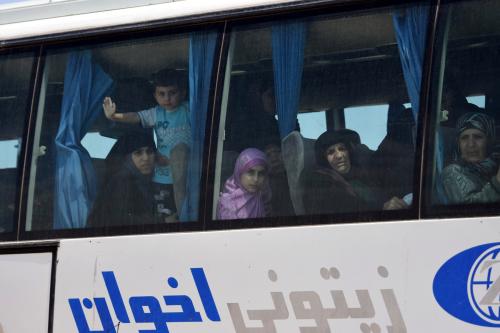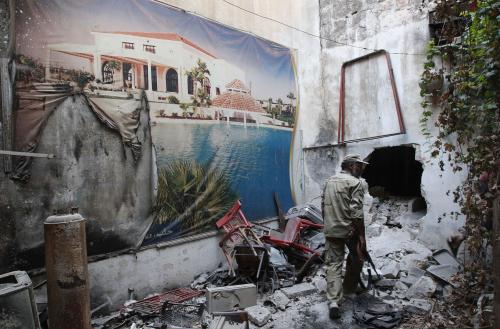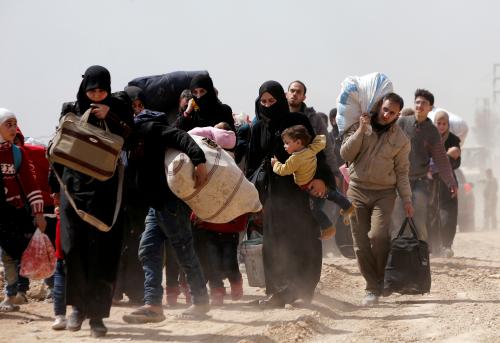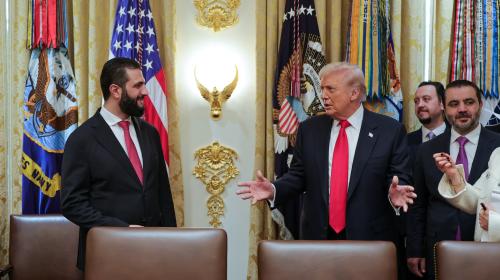Executive summary
With an all-out fight for Syria’s northwest province of Idlib looming, if not already beginning, the potential is growing for yet another round of immense human tragedy within the country. The consequences for regional stability, and for the possible future emergence or re-emergence of various extremist groups and associated sanctuaries, could be severe. Future events may soon require an updating of our analysis and ideas, but nonetheless, we offer the following as a realistic “10-degree shift” to U.S. policy in Syria at this crucial inflection point in the war.
Current U.S. strategy toward Syria has largely, though not completely, led to the battlefield defeat of ISIS there. But to prevent the re-emergence of ISIS or a related extremist group, limit Iranian influence in Syria, and address humanitarian and refugee stresses in the region that severely affect U.S. allies such as Turkey and Jordan, the United States should engineer what we call a 10-degree shift in strategy. Chief elements would include:
- Recognizing what is increasingly obvious: that President Bashar Assad will not be displaced or replaced through the current Geneva peace process. Instead, the United States should work over time to persuade his cronies and allies to convince him to step down in favor of a successor who is largely of his choosing. Other Syrian groups and the international community should have a say in the formation of additional elements of a new Syrian government, as a precondition for the provision of substantial reconstruction aid to and through the central government.
- Threatening and, if necessary, conducting limited reprisal air strikes against Syrian aerial assets, in retaliation for any future regime barrel bombing, particularly around Idlib. Washington should adopt a similar strategy toward Iran should its proxies attempt attacks against the United States or its allies.
- Promptly providing humanitarian and reconstruction aid to those parts of Syria not under government control, with U.S. forces remaining in roughly their current number and location to supervise the process and help train provisional local security forces (more like police than opposition forces bent on Assad’s removal). The aid should be provided more locally than regionally, in part to discourage the formation of a single, strong Kurdish zone that would exacerbate Turkish fears of secessionism.
- Working with Turkey to weaken extremist elements in and around Idlib, including with limited military action if need be, and continuing U.S. military action against residual pockets of ISIS elements in the country’s east until the battlefield defeat of ISIS is complete.
The Brookings Institution is committed to quality, independence, and impact.
We are supported by a diverse array of funders. In line with our values and policies, each Brookings publication represents the sole views of its author(s).
